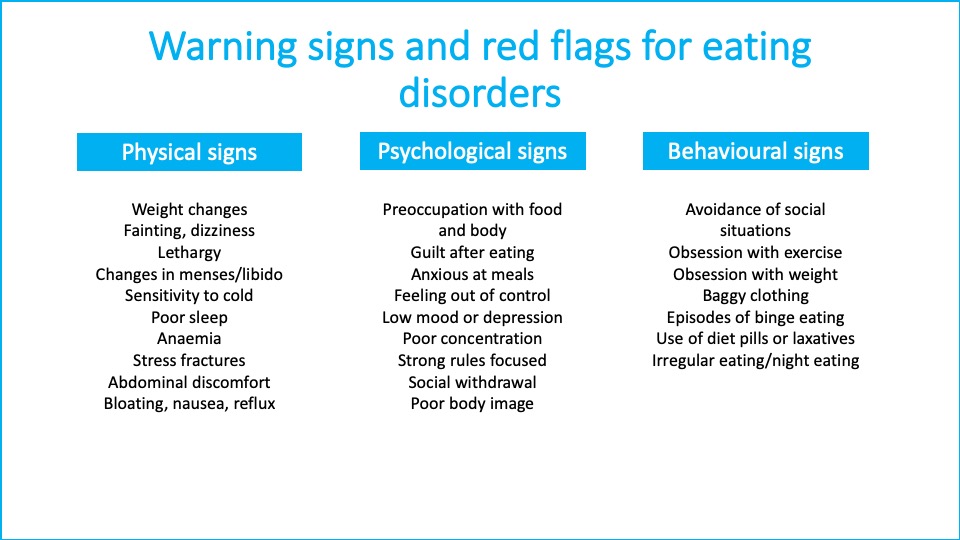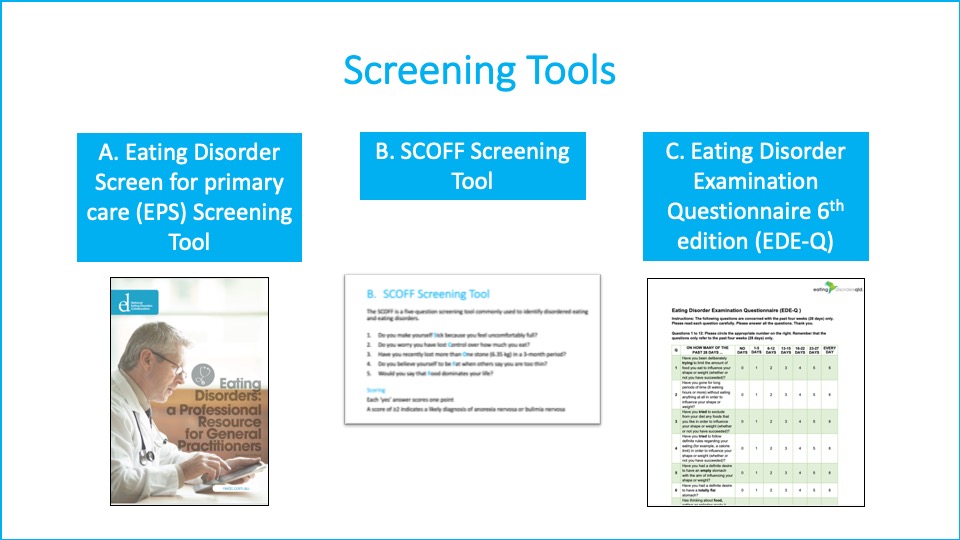Identifying eating disorders in the primary care setting. Presented by Jen Pfeifler, APD,ASD
This presentation was produced for GPs to help identify eating disorders in primary care. The Eating Disorder Plan (EDP) released by Medicare in November 2019 has highlighted the importance of being able to identify patients with eating disorders and offering them timely and appropriate treatment. Both GPs and dietitians who watch this presentation can use it as part of their CPD program (GPs receive 2 CPD Activity Points).
The prevalence of eating disorders in Australia is estimated to be 9% of the adult population, and this figure continues to increase. A 2015 study of older adolescents and adults found prevalence as high as 16.3%, where binge eating disorder (BED) accounted for 6.3%1.
Eating disorders are detrimental for the individual’s physical and mental health. The total socio-economic cost of eating disorders in 2012 was estimated at $69.7 billion2. Early intervention may limit the progression and improve outcomes of eating disorders.
A 2017 Australian survey of healthcare professionals suggested that participants were reluctant to diagnose comorbid BED and obesity, and that they indicated a narrow range of evidence-based treatment options3.
There appears to be no research on either how confident Australian GPs feel or how they manage eating disorder clients. A UK national survey of medical practitioners found nearly 59% of providers did not feel like they had the skills necessary to intervene with eating disorders4. Another, separate British study found few GPs adhere to primary care guidelines and protocols on the management of eating disorders, and many felt dissatisfied with the treatment they were providing5.
The aim of this on-demand recording is to provide a clear and practical overview of the latest evidence for identifying and managing eating disorders in primary care.
- Rowe E. Early detection of eating disorders in general practice. Aust Fam Physician 2017;46(11):833-838.
- The Butterfly Foundation. Paying The Price: The economic and social impact of Eating Disorders in Australia. 2012. Available at https://thebutterflyfoundation.org.au/about-us/information-and-resources/paying-the-price/ (accessed 19 December 2019).
- Cain B, Buck K, Fuller-Tyszkiewicz M, Krug I. Australian Healthcare Professionals’ Knowledge of and Attitudes toward Binge Eating Disorder. Frontiers in Psychology 2017;8(1291):1-11.
- Linville D, Brown T, O'Neil M. Medical Providers' Self Perceived Knowledge and Skills for Working With Eating Disorders: A National Survey. Eating Disorders 2012;20(1):1-13.
- Graham J. GPs are dissatisfied with the care they are giving patients with eating disorders. BMJ. 2005;330(7496):866.


Jen Pfeifler is an Accredited Practising Dietitian and Sports Dietitian.
Jen's interest and expertise lies in working with recreational and elite level athletes to manage eating and weight concerns and optimize sports performance. Jen completed a bachelor’s degree in nutrition and Dietetics at Auburn University, USA while playing DIV 1 tennis. She then moved to the Gold Coast to pursue Masters in Nutrition and Dietetic Practice at Bond University and now works full time in private practice at River Oak Health in Brisbane with Shane Jeffrey working in eating disorders, disordered eating, sports nutrition and weight concerns to help individuals develop a positive, balanced approach to food and/or performance.
To register for the presentation and associated documents including the assessment quiz click here